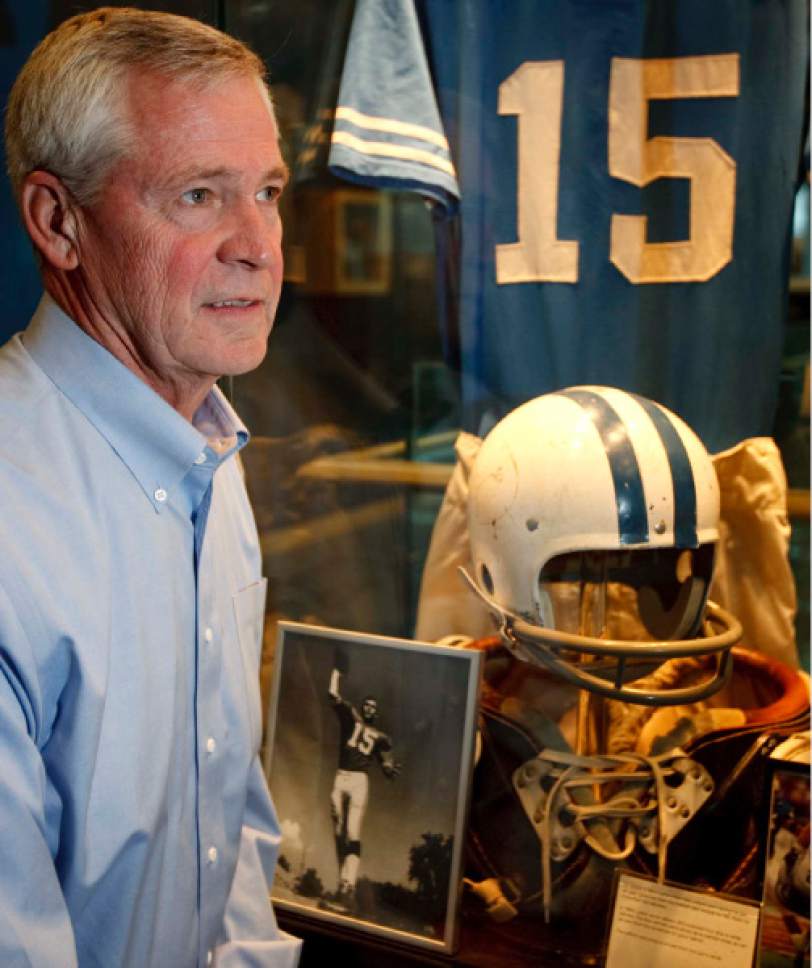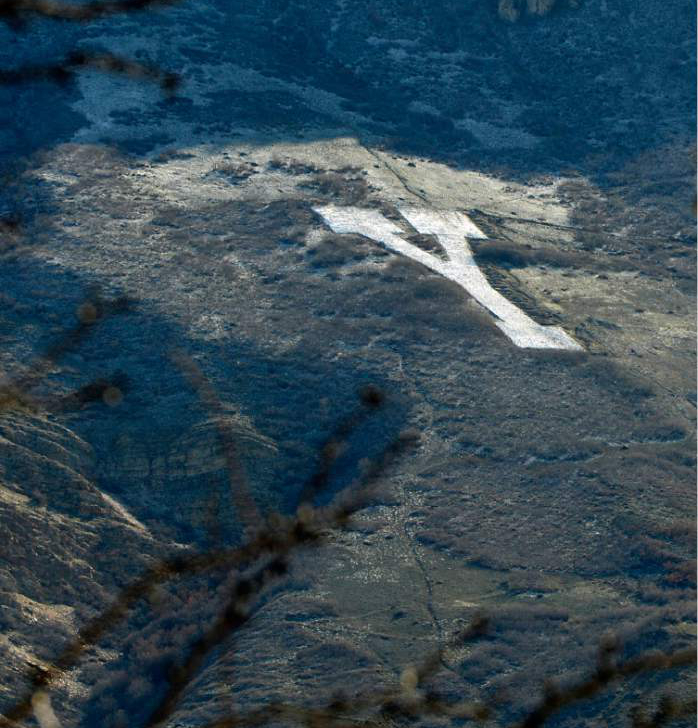This is an archived article that was published on sltrib.com in 2017, and information in the article may be outdated. It is provided only for personal research purposes and may not be reprinted.
Almost half a century after it sparked a national controversy, the LDS Church's racial policies and the BYU football team are the center of a documentary on the CBS Sports Network.
A protest by members of the Wyoming football team against BYU and The Church of Jesus Christ of Latter-day Saints is the subject of "The Black 14: Wyoming Football 1969" (Saturday, 8:30 and 10:30 p.m. MT).
In October 1969, 14 African-American players at Wyoming made national headlines on the eve of the Cowboys' game with BYU. Their coach, Lloyd Eaton, didn't just forbid them from wearing black armbands as a protest, he kicked them off the team.
It became a flashpoint in college civil rights protests — Wyoming and BYU both became the focus of demonstrations and boycotts.
"It exploded onto the national scene," said Emilie Deutsch, CBS Sports' vice president of features and original programming. "All three broadcast networks had reporters and camera crews there, and I was kind of surprised that we had not come across it before."
Cowboys and Cougars fans may recall it — although both groups have reason to forget what is a black mark on both programs. But even those familiar with what happened may not be aware that it wasn't all about LDS policy that excluded African-American from the priesthood and temple endowments.
"In addition to anger at the racist policies of the Mormon Church," the documentary's narrator intones, "many Wyoming players felt a simmering sense of injustice that lingered from the BYU game at Provo the previous season."
Members of the Black 14 say BYU players hit them late; used racial epithets; and refused to shake hands after the Cowboys won on a late field goal. And that someone turned the sprinklers on as they were leaving the field.
"We weren't fighting a religion," says Tony McGee, one of the Black 14. "We weren't protesting a people. We were protesting the attitude — what was happening to us on the field."
"The Black 14" is about Wyoming. No one from BYU or the LDS Church is interviewed about church policies; there's a post-script that the LDS Church changed its policy in 1978. And no one offers a defense to the charges leveled against BYU players.
"This is really the story of the Black 14," Deutsch said. "We did reach out to people at BYU, and it became evident that they really didn't want to get into it."
One former Cougars player, Dick Legas, who went on to be a longtime assistant track coach, does appear briefly.
"There was an atmosphere of animosity towards us," he says, "But I thought if people just understood — we're just guys. We're just football players. We just want to play you in a football game."
Even after the suspensions, Wyoming routed BYU 40-7. But after starting 6-0, the Cowboys lost their final four games. They went 1-9 in 1970, and Eaton was fired.
The documentary puts what happened into the context of the time.
"Everybody was protesting something," Deutsch said. "It was sweeping the country."
And it wasn't just BYU that faced protests. There were on-field demonstrations against Wyoming, and groups on other Western Athletic Conference campuses demanded the Cowboys be expelled from the league for how they treated the Black 14.
"This is a really powerful story," Deutsch said, "and we hope that people feel that emotion."
Scott D. Pierce covers TV for The Salt Lake Tribune. Email him at spierce@sltrib.com; follow him on Twitter @ScottDPierce.





